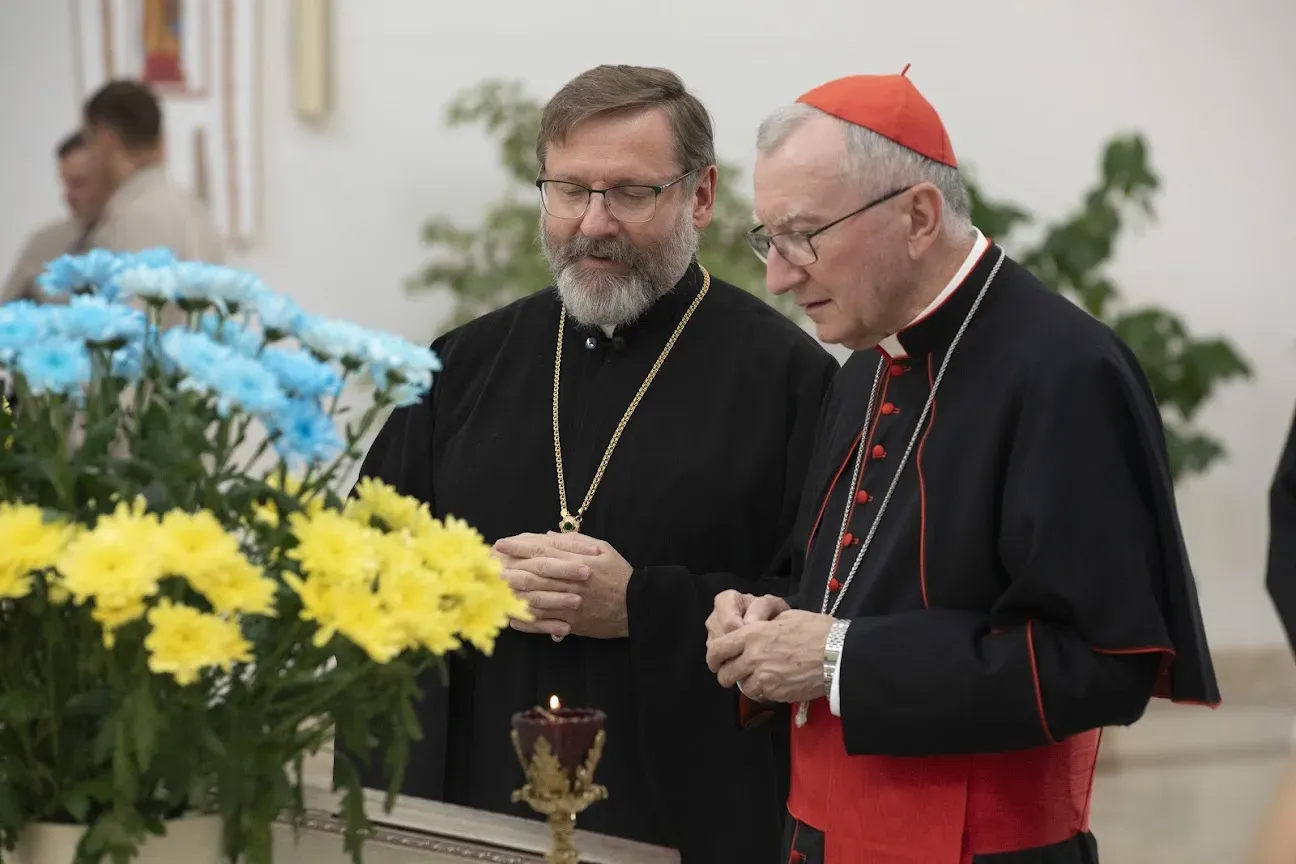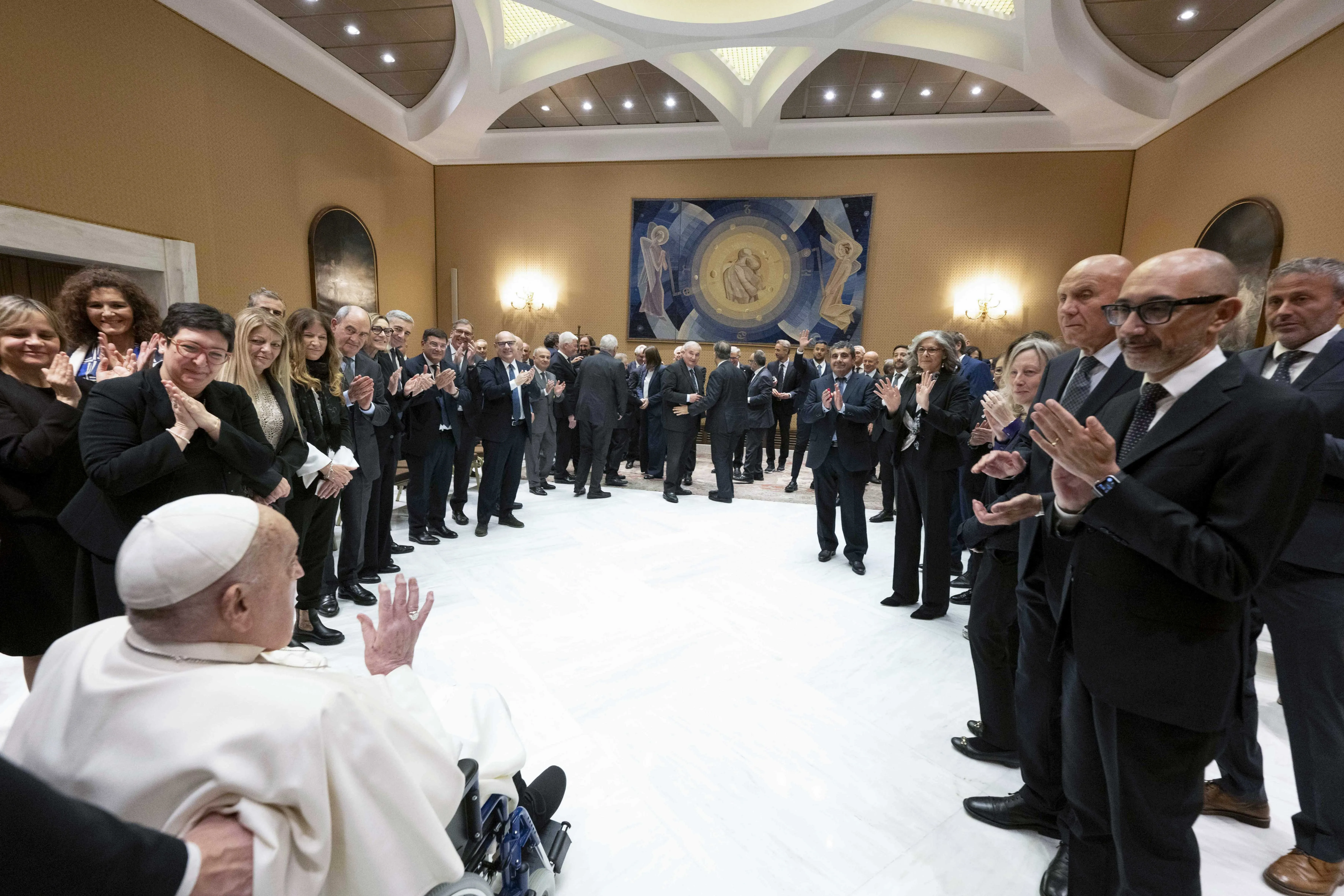“The message I brought from the pope is one of closeness,” Parolin said, according to Vatican News. The cardinal recalled Pope Francis’ many references to a “martyred Ukraine.”
“From the very beginning, the pope has manifested a very great closeness, a very great participation in the pain and suffering of this people,” Parolin said, adding that he comes to the war-torn country to bring Pope Francis’ closeness “in person.”
The pontiff, he said, “shares the pain but above all would like to be able to help open” paths for a solution to the war.
In Odesa, one of Ukraine’s worst-hit cities since the start of the war, Parolin visited the Assumption of the Blessed Virgin Mary Cathedral, where he met with lay Catholics and local clergy as well as representatives of the government and of the Orthodox Church of Ukraine.
According to Vatican News, the cardinal said he was bringing “the closeness, the presence, and the blessing of the Holy Father Francis,” who is “following your situation with so much attention, with so much worry and so much pain.”
“As Christians, we should not lose hope,” including the hope that “by the grace of the Lord, who is able to touch even the hardest of hearts … a way to a just peace can be found,” Parolin said.
In Odesa, the secretary of state also visited the Greek-Catholic Parish of St. Michael and the Orthodox Cathedral of the Transfiguration, which was damaged in a Russian missile attack last year.
On Sunday, July 21, Parolin celebrated Mass at the Shrine of Our Lady of Mount Carmel in Berdychiv. The Mass marked the conclusion of a pilgrimage by Latin-rite Catholics of the Diocese of Lviv.
The intention of the Mass was for an immediate end to the ongoing war in Ukraine, Parolin told Vatican News.
In his homily at Mass, he encouraged Ukrainian Catholics to “never lose trust and hope in God, especially today, when it seems that evil has the upper hand, when the horrors of war and the pain of the many victims and the massive destruction undermine faith in divine goodness, when our arms fall off and we no longer even have strength to pray.”









